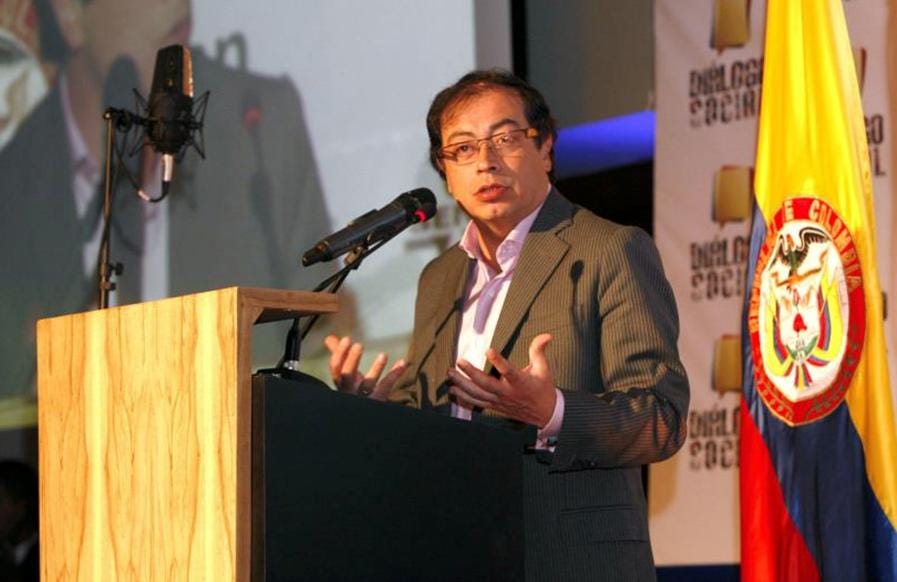
**Deslízate hacia abajo para leer en castellano***
Ahoy!
It’s Holy Week (Semana Santa) and we hope you’ve all weighed anchor somewhere nice for Easter: irrespective of our faith, most of us have a long weekend.
Colombia’s presidential elections are coming up on 29 May, and violence has been growing in conflict zones. Last month’s parliamentary elections saw fraud allegations on both sides after the quick count failed to pick up hundreds of thousands of votes for the poll-topping leftist coalition, Pacto Histórico.
Between us, the Pirate Wire Services crew cover Colombia, Peru and Bolivia, and all of these countries have seen cries of foul play recently. So for this week’s podcast, Amy took a look at electoral fraud allegations: who’s crying fraud, in what circumstances, and are they always wrong?
Don’t forget to leave us a comment telling us what you think on Substack or our Twitter. You can also contact Amy on amyeditorial@gmail.com.
Stories we’re watching
Mexican President Andrés Manuel López Obrador (AMLO) trumpeted his victory in a recall referendum last Sunday in which more than 90% of voters opted for him to remain in office. AMLO welcomed the results and stated that "Mexico has no king, it is a democracy and the people rule." Only 18% of the electorate voted in what was widely viewed as a pointless chest-beating exercise, and opposition leaders urged their supporters not to participate.
Polls suggest that Chileans could reject a proposed new constitution in a referendum later this year. One survey found that 46% would currently vote to reject it, surpassing the 40% who support it for the first time, amid concerns that some of the proposed changes are too radical. The new constitution would replace the current document, which dates back to the Pinochet dictatorship and is widely viewed as representing the inequality that sparked a massive social uprising in 2019. On Wednesday, the convention in charge of re-drafting the constitution approved an article that would replace the nation’s Senate with a “Council of regions”.
A Buenos Aires judge has ordered the suspension of the Argentine capital’s facial recognition system. First implemented during the right-wing Macri presidency in 2019, the facial recognition technology is supposedly for catching fugitives. But an investigation has found that over 9 million biometric data searches have been made, far more than the 40,000 criminals that officials claim the system is targetting. Current President Alberto Fernández, Vice President Cristina Fernández de Kirchner, and prominent human rights campaigners are among those whose data was searched, local media report.
Argentina registered 6.7% inflation for the month of March alone, according to figures released by its National Institute of Statistics and Census (INDEC) on Wednesday. The figure was even higher for food and soft drinks, at an eye-watering 7.2%. Poverty fell from 40.6% in the first half of 2021 to 37.3% in the second half of the year, but there are growing concerns about the numbers of working poor. President Alberto Fernández announced a “war against inflation” last month, which generated a lot of memes but not much difference to food prices.
Stories we’re reading
Evidence continues to emerge of the alleged 'False Positive' in a military operation a few weeks ago in Putumayo, Colombia, where it has been proven that the Government distorted the facts and may even have tried to cover up the murders of at least 4 civilians. An excellent investigative long-form piece by Colombian media company Voragine reveals that the army may have planted weapons on some of the bodies of dead civilians after the fact, and that among the victims was a pregnant woman. Both UN investigators and the Colombian congress have demanded a full investigation.
Stories we’re writing
An updated version of Amy’s story for PWS on Ex-President Áñez’s Trial in Bolivia was published by NACLA. “Many in the human rights community feel that holding Áñez accountable for her deeds is a crucial step towards justice,” she writes, “But others say she isn’t getting due process, which they fear could undermine faith in the proceedings and set a dangerous precedent, provoking a complex and polarized legal and social debate.”
Spanish word of the week: Quincena. Payday. In Colombia, paychecks go out every 15 days, on the 15th and the 30th. Everyone loves Quincena- except if you’re trying to wait in the huge lines to use an ATM or buy liquor.
¡Noticias Castellanas!
Historias que estamos viendo
El presidente de México, Andrés Manuel López Obrador (AMLO), proclamó su victoria en un referéndum revocatorio el pasado domingo en el que más del 90% de los votantes optaron por su permanencia en el cargo. AMLO saludó los resultados y afirmó que “México no tiene rey, es una democracia y manda el pueblo”. Solo el 18% del electorado votó en lo que se consideró un ejercicio de golpes de pecho sin sentido, y los líderes de la oposición instaron a sus seguidores a no participar.
Las encuestas sugieren que las mayorías del pueblo chileno podrían rechazar una nueva constitución propuesta en un referéndum para finales de este año. Una encuesta encontró que el 46% actualmente votaría para rechazarlo, superando el 40% que lo apoyó por primera vez, pues para parte de las y los chilenos los cambios propuestos son ‘demasiado radicales’. La nueva constitución reemplazaría al documento actual, que nació en la dictadura de Pinochet y es ampliamente visto como una representación de la desigualdad que provocó un levantamiento social masivo en 2019. El miércoles, la convención a cargo de volver a redactar la constitución aprobó un artículo que reemplazaría el Senado de la Nación por un “Consejo de Regiones”.
Un juzgado de Buenos Aires ordenó la suspensión del sistema de reconocimiento facial de la capital argentina. Implementada por primera vez durante la presidencia de derecha de Macri en 2019, la tecnología de reconocimiento facial supuestamente fue diseñada para atrapar fugitivos, pero una investigación descubrió que se han realizado más de 9 millones de búsquedas de datos biométricos, mucho más que los 40,000 delincuentes que tenía como objetivo el sistema. Según señalaron medios locales, el actual presidente Alberto Fernández, la vicepresidenta Cristina Fernández de Kirchner y destacados activistas de derechos humanos se encuentran entre aquellos cuyos datos se han buscado.
Argentina registró una inflación de 6,7% solo en el mes de marzo, según cifras publicadas este miércoles por su Instituto Nacional de Estadística y Censo (INDEC). La cifra fue aún mayor para alimentos y refrescos, con un 7,2%. La pobreza cayó del 40,6 % en la primera mitad de 2021 al 37,3 % en la segunda mitad del año, pero existe una creciente preocupación por la cantidad de trabajadores pobres. El presidente Alberto Fernández anunció una “guerra contra la inflación” el mes pasado, lo que generó muchos memes pero no mucha diferencia con los precios de los alimentos.
Historias que estamos leyendo
Sigue surgiendo evidencia del presunto ‘Falso Positivo’ en una operación militar hace unas semanas en Putumayo, Colombia, donde se ha comprobado que el Gobierno tergiversó los hechos e incluso, pudo haber tratado de encubrir los asesinatos de al menos 4 civiles. Un excelente artículo de investigación conjunta de largo aliento, en el medio Vorágine reveló que el ejército pudo haber colocado armas en algunos de los cuerpos de los civiles muertos después del hecho, y que entre las víctimas se encontraba una mujer embarazada. Tanto los investigadores de la ONU como el congreso colombiano han exigido una investigación exhaustiva.
Historias que estamos escribiendo
La historia de Amy para PWS sobre el juicio de la expresidenta Áñez en Bolivia fue publicada por NACLA. Amy actualizó el artículo con algunos informes nuevos. “Muchos en la comunidad de derechos humanos sienten que responsabilizar a Áñez por sus actos es un paso crucial hacia la justicia”, escribió, “pero otros dicen que no está recibiendo el debido proceso, lo que temen podría socavar la fe en los procedimientos y establecer un precedente peligroso, provocando un debate legal y social complejo y polarizado.”











